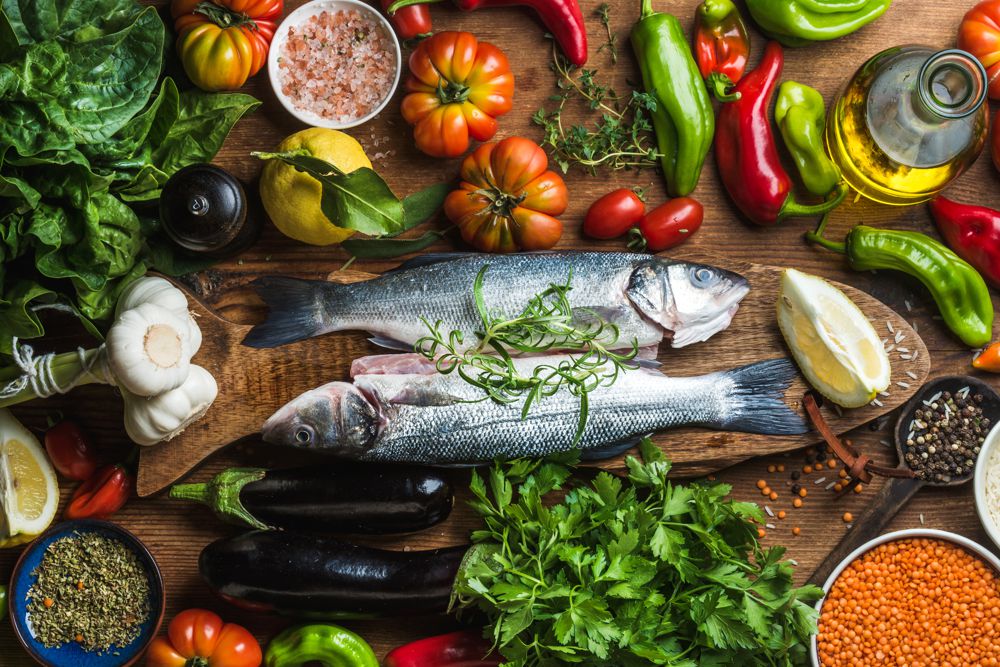The Mediterranean Diet

WHAT IS THE MEDITERRANEAN DIET?
Thanks to dense coastlines and rich soils, the islands caressing the Mediterranean Sea serve up diets full of nuts, veggies and legumes, and olive oils. Traditionally a peasant-style diet, it’s largely plant-based, with little meat, and next to no hyper-processed foods. However, it is relatively high in fat – meaning if the Mediterranean diet is as healthy as research shows, fat is not the enemy commonly thought of in Western diets.
WHAT DOES THE RESEARCH SAY?
Numerous studies spanning decades have been carried out on the Mediterranean diet, increasingly spotlighting the staggering health benefits – reduced risk of dementia, reversed symptoms of depression and anxiety, prevention of heart attacks, and promotion of longer life expectancy. It’s also been shown to improve diabetes, high blood pressure, and bowel and prostate cancer.
EATING MEDITERRANEAN: 7 TIPS
There are plenty of Mediterranean cookbooks out there, but a lot of them focus on festive foods and desserts from the region, removing the traditional focus. So when it comes to eating the Mediterranean way, it’s less about souvlaki and baklava, and more about legumes, nuts, grains and veggies. Here are 7 steps to have you on your Mediterranean way.
Get your fat from oil
Use Extra Virgin Olive Oil as your main source of fat. Drizzle it on your veggies and fish.
Eat vegetables with every meal
Aim for 5 servings/day.
Always add legumes
The humble beans and legumes are not only low in artery-clogging fat, but provide a good source of fiber and protein. What’s more they’re cheap and versatile.
Try eating fish twice a week
Eat at least two-three servings of fatty fish per week, such as salmon, blue-eye mackerel, sardines and tuna.
Less meat is best
Western diets rely on large consumption of meat, but the Mediterranean diet is all about treating meat as a side dish, rather than a main. Eat smaller portions of beef, lamb, pork and chicken.
Snack on fruit and nuts
Fresh or dried fruit and nuts are the perfect daily snack. Eat a handful of nuts between meals and up two pieces of fruit every day.
Get your grains
Pad out your meals with wholegrains, namely quinoa, brown rice, or sourdough bread. 2 slices of bread or a cup of brown rice per meal is a good guide.